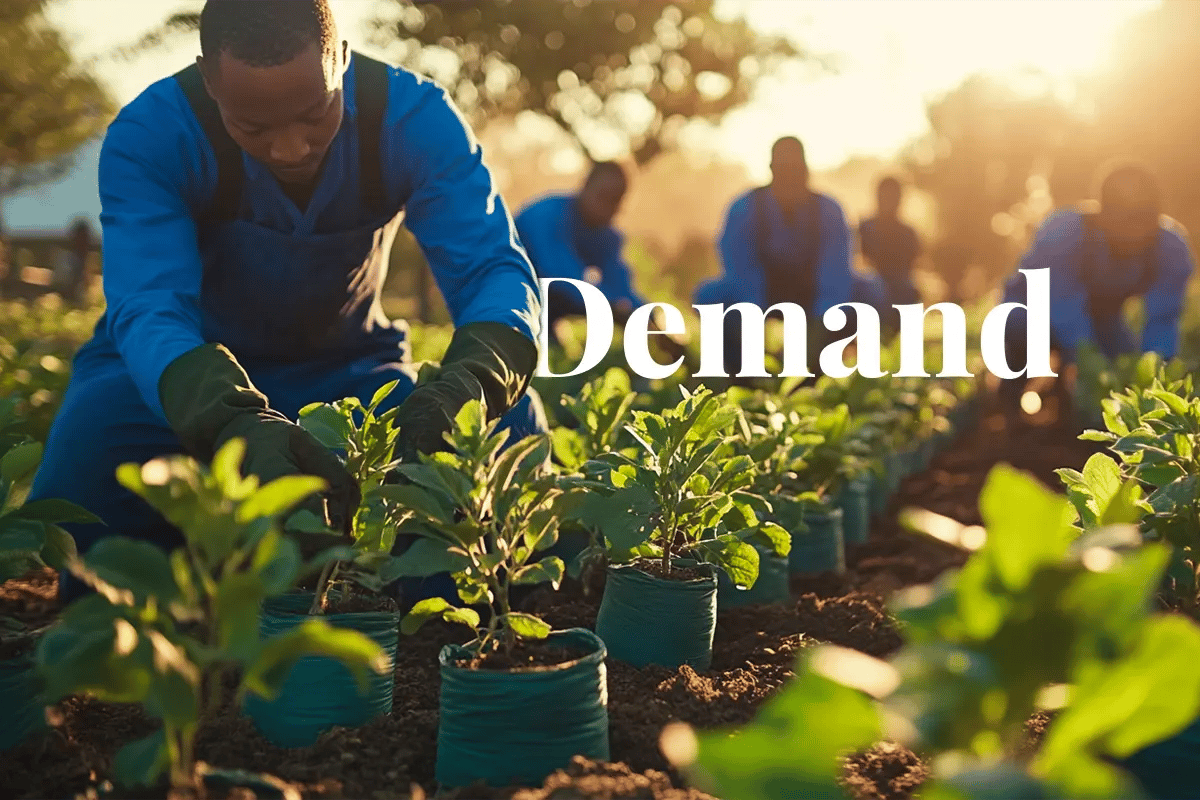A new report from Sylvera, a carbon data platform, reveals a growing willingness among carbon credit buyers to pay higher prices for projects delivering robust environmental benefits. This shift comes as the voluntary carbon market grapples with credibility issues that have sparked hesitancy among some buyers.
 Tree nursery workers in Africa actively tending to young tree seedlings, surrounded by rows of vibrant green plants. AI generated picture.
Tree nursery workers in Africa actively tending to young tree seedlings, surrounded by rows of vibrant green plants. AI generated picture.
Sylvera’s State of Carbon Credits 2024 Report shows that while total carbon credit purchases grew marginally by 0.2% compared to 2023, the market has largely plateaued since 2021. Despite this, retirements of credits—indicating their environmental benefits have been fulfilled—increased significantly for high-credibility projects rated BB or above. These retirements rose 25%, from 33.4 million credits in 2023 to 41.7 million in 2024.
In contrast, retirements from low-quality projects rated D more than halved, reflecting a market shift away from risky or less reliable initiatives. Buyers are increasingly avoiding projects prone to overcrediting, double counting, or permanence risks, according to Sylvera’s CEO Allister Furey.
Read more: Buy green bonds: a sustainable investment for a greener future
Furey emphasised that companies are more discerning, screening out high-risk projects or entire categories. The willingness to pay a $5 premium per rating band, equating to $35 more for top-rated credits compared to the lowest-rated ones, underlines a prioritisation of quality over cost.
The report also notes market fragmentation, with some buyers overpaying for credits. However, the convergence of voluntary and compliance markets—such as under the Paris Agreement's Article 6.4 and aviation sector-specific schemes like CORSIA—could intensify competition for high-quality credits. As demand for credible carbon credits grows, Sylvera predicts a sustained shift toward quality, further reshaping the market landscape.
Read more: UN releases key documents for Paris Agreement’s Article 6.4 framework
By partnering with DGB Group, you can capitalise on the growing demand for high-quality carbon credits and contribute to impactful environmental progress. Our innovative nature-based projects, such as large-scale reforestation efforts, are designed to restore ecosystems, empower local communities, and align with trusted international frameworks like those referenced in Sylvera’s report. As a reliable partner, DGB offers the opportunity to combine financial success with meaningful sustainability outcomes, ensuring your investment drives measurable environmental benefits while fostering global progress.




